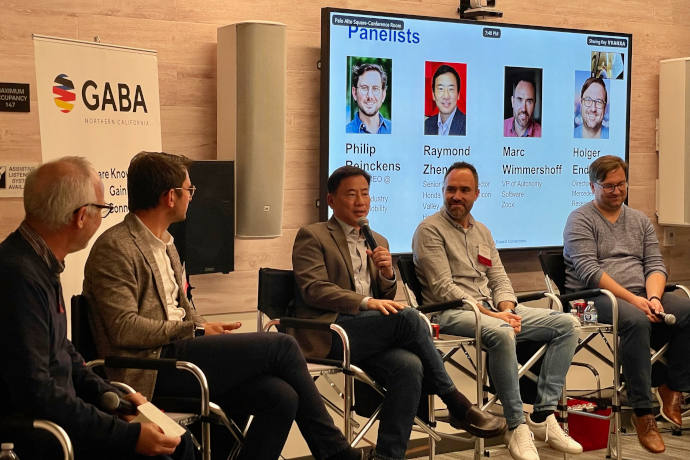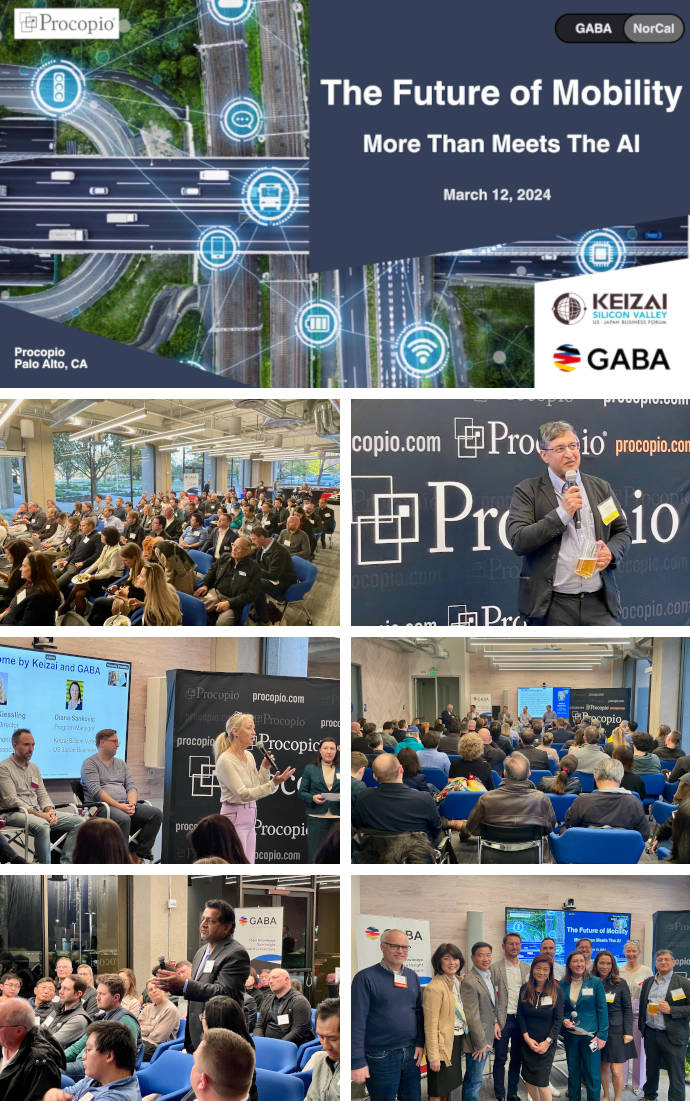
The Future of Mobility – More than Meets the AI
More Than Meets the AI – GABA’s latest event on the future of mobility, in collaboration with the US Japan Business Forum Keizai, drew a large crowd on March 12 at the offices of Procopio in Palo Alto. Participants were brought up to speed on the latest developments in the mobility sector by industry experts Raymond Zheng (Senior Managing Director, Honda Innovations Silicon Valley, Inc.; Honda Xcelerator Ventures), Holger Endt (Director Data & AI, Mercedes-Benz Research & Development North America, Inc.), Philip Reinckens (Former CEO, Spin, GABA Industry Expert Mobility), and Marc Wimmershoff (VP of Autonomy Software, Zoox), skillfully moderated by GABA’s Innovation Expert Steffen Bartschat. Like in many other fields, AI is rapidly transforming the mobility sector. In his introduction, host Miku Mehta (Procopio, Cory, Hargreaves & Savitch LLP) pointed out that an astonishing 50% of all patent applications in the US include some form of AI terminology.
Speaking from the perspective of a luxury car maker, Holger Endt of Mercedes-Benz described how AI is utilized inside vehicles to enhance the driver and passenger experiences, including the recently announced integration of ChatGPT in selected models. On the self-driving front, the Mercedes EQS with DrivePilot is the first car to achieve a class 3 autonomous vehicle designation, requiring no monitoring by the driver on selected roads.
Autonomous driving, after initial predictions of rapid market entry, has encountered a more subdued phase. Marc Wimmershoff explained that in the past the complexity of technical challenges combined with the increased scale of the deployed engineering teams had slowed the pace of development, but he is now more optimistic about the pace of development for the future, since the major technical hurdles are solved. Philip Reinckens highlighted the economic considerations behind such technological advancements, emphasizing the necessity for companies to maintain a strong core business for long-term viability. Of course, safety remains a key focus for all companies in this space.
The experts also addressed the recent slowdown in electric vehicle (EV) sales, attributing it to factors such as customer mistrust in available charging networks, higher insurance and repair costs, and a lack of medium-priced vehicles. Raymond Zheng noted that transitioning to full EV acceptance might necessitate an interim phase that includes hybrid models.
In the micro-mobility sector, the experts identified a crucial need for adjustment. Philip Reinckens highlighted a historical imbalance between supply and demand, with an oversaturation of scooters and intense competition. To ensure the success of micro-mobility solutions, integration into dedicated city programs and the public transportation sector is essential.
For more great pictures of the event, please see our event photo album here.

